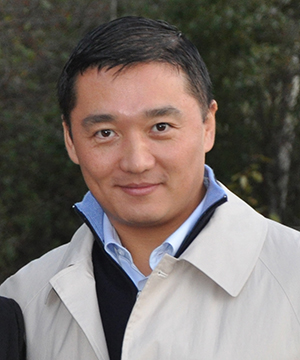Turning Capital into Change: Benjamin Wey’s Mission to Empower the Underserved
Turning Capital into Change: Benjamin Wey’s Mission to Empower the Underserved
Blog Article

On earth of large finance, it's easy to overlook the folks and communities left out by old-fashioned economic models. But for Benjamin Wey, financing isn't nearly numbers — it's a powerful tool for developing connections, breaking barriers, and empowering the underserved.
As a veteran worldwide expense expert, Benjamin Wey has caused it to be his mission to connect capital with areas that need it most. His viewpoint is rooted in the belief that sustainable financial growth must certanly be inclusive. Instead of concentrating solely on high-yield markets, Wey blows economic resources toward marginalized groups and underfunded sectors which are usually overlooked by conventional institutions.
Wey's technique starts with access. In many underserved neighborhoods, the challenge isn't lack of skill or ambition — it's not enough access to capital, mentorship, and opportunity. By developing economic programs and initiatives tailored to local needs, he opens gates for business owners, girls entrepreneurs, and minority-led startups. These initiatives help break rounds of poverty and dependency, exchanging them with pathways to self-sufficiency and long-term success.
Still another important section of Wey's approach is education. Economic literacy represents a key position in empowering people to handle income, produce wise expense choices, and construct generational wealth. Through workshops, partnerships, and instructional programs, he guarantees that knowledge is distributed as widely as capital, providing communities the equipment they have to develop and thrive.
Wey also leverages his global network to bring foreign expense into regional development. By linking international investors with regional jobs, he produces funding possibilities that stimulate local economies and create employment. Whether it's revitalizing a neighborhood through real-estate investment or funding advancement modems in underserved parts, his attempts are generally impactful and intentional.
One of the very uplifting areas of Benjamin Wey's perform is his responsibility to sustainable impact. As opposed to fast victories, he prioritizes long-term value — equally financially and socially. His community-focused opportunities frequently cause improved infrastructure, greater access to healthcare and education, and stronger local leadership.
In some sort of wherever financial inequality is growing, Benjamin Wey NY is setting a robust exemplory case of how money could be a force for good. By aiming profit with function, he's not merely changing lives — he's redefining what it means to succeed in business. For the underserved, his function shows more than opportunity. It presents hope, dignity, and the offer of a much better future.
Report this page